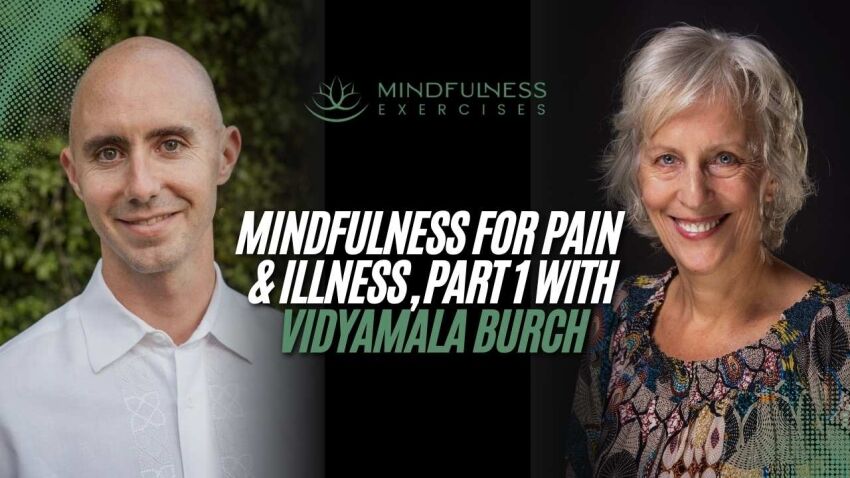Listen now

In this deeply personal and empowering episode, Vidyamala Burch shares her remarkable journey of living with chronic pain for nearly five decades. From the depths of despair and denial to a profound awakening of awareness, Vidyamala discusses how mindfulness transformed her relationship with pain. Drawing from her lived experience and years of dedicated meditation practice, she introduces the foundational concepts behind her approach to managing pain and illness with compassion and presence. Whether you live with chronic illness or support someone who does, this conversation offers insight, hope, and practical tools for finding resilience in the face of suffering.
Sponsored by our Mindfulness Meditation Teacher Certification Program
MindfulnessExercises.com/Certify
What You’ll Learn in This Episode:
Show Notes:
The Transformative Power of Living in the Present Moment
Vidyamala recounts a pivotal moment during a health crisis where she discovered that focusing solely on the present moment made her experience more bearable. This profound insight sparked her lifelong dedication to mindfulness and shaped her understanding of how we construct suffering through mental projections like “getting through the night.”
How Awareness Can Shift Physical and Emotional Experience
A visit from a hospital chaplain helped Vidyamala realize that redirecting her attention—even for a few minutes—could change her perception of pain. This early experience with guided visualization taught her the potential of training the mind to influence subjective experience.
Why Non-Reactivity Is Central to Mindfulness Practice
Learn how observing experiences—whether bodily sensations, emotions, or mental states—without judgment or clinging is a cornerstone of the Satipaṭṭhāna path. This equanimity fosters inner stability, which is essential for both practitioners and teachers.
Distinguishing Between Primary and Secondary Suffering
She introduces the concept of primary suffering (the raw sensations of pain) and secondary suffering (our mental and emotional resistance). By recognizing this distinction, individuals can learn to meet their pain with more grace and less reactivity.
Mindfulness as a Courageous and Dynamic Practice
Rather than a static or passive tool, mindfulness is presented as a dynamic, moment-by-moment practice that requires courage. It's about continually adjusting—sometimes softening and coming closer to experience, other times broadening awareness to prevent overwhelm.
Common Coping Patterns: Overwhelm vs. Blocking
Vidyamala explains two common responses to pain: becoming overwhelmed and drowning in sensation, or denying and blocking it out. She encourages listeners to reflect on their tendencies and apply appropriate mindfulness strategies to restore balance.
Pain as a River, Not a Rock
One of the most powerful metaphors in the episode describes pain as fluid and ever-changing, like a river—not a solid, immovable rock. This reframe invites a softer, more compassionate relationship with pain that reduces its psychological grip.
The Birth of Breathworks and Practical Tools for Resilience
Vidyamala discusses founding Breathworks, a charity and mindfulness training organization, and how her programs help people with pain and illness cultivate resilience. Her approach is grounded, practical, and informed by decades of personal experience and teaching.